Vice-Provost's View: Five tips to help you navigate Open Access
12 November 2015
UCL is a pioneer in Open Access (OA) - that is, making research outputs freely available online.
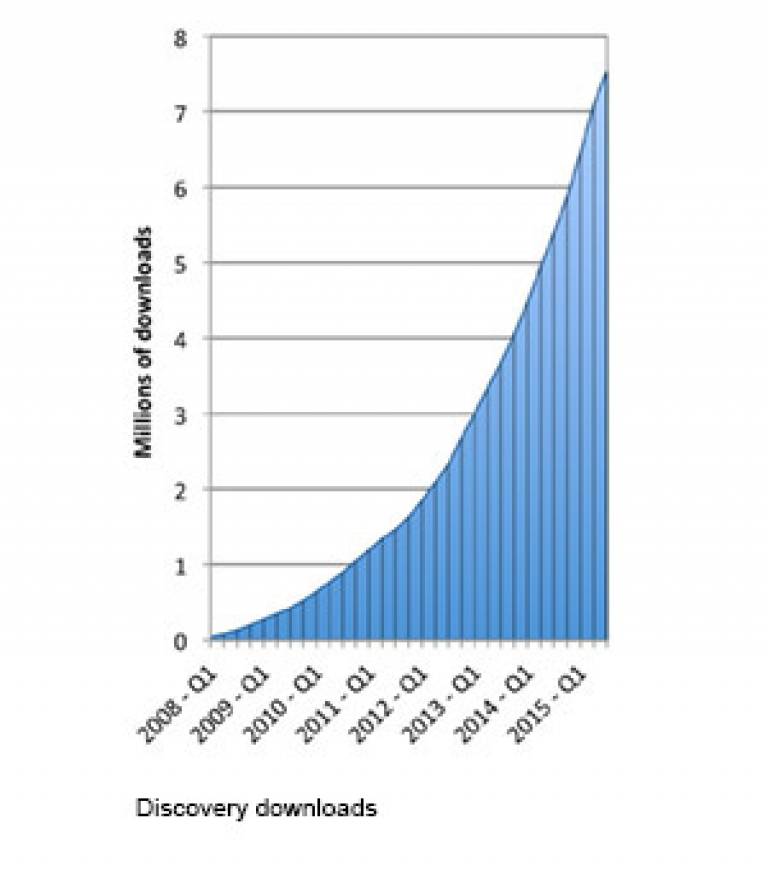 In 2009, we became the first European university ranked in the global top ten
in the THE-QS world university rankings to make our research free to all,
and earlier this year, we celebrated the launch of the UK's first fully OA
university press (UCL Press).
UCL's policy states that authors must deposit all of their research
outputs in our institutional Open Access repository, UCL Discovery.
In 2009, we became the first European university ranked in the global top ten
in the THE-QS world university rankings to make our research free to all,
and earlier this year, we celebrated the launch of the UK's first fully OA
university press (UCL Press).
UCL's policy states that authors must deposit all of their research
outputs in our institutional Open Access repository, UCL Discovery.
OA is entirely in accordance with the UCL 2034 vision, "… to transform how the world is understood, how knowledge is created and shared, and the way that global problems are solved" and the aim of the UCL Research Strategy to "maximise the impact of our global university".
OA presents the opportunity to revolutionise how and how widely research is disseminated, bringing your discovery and analysis to users worldwide, regardless of their ability to pay for access. It gives the academic community the means to displace a broken publishing model.
Depositing your outputs is of huge benefit to the impact of your research, because it ensures that other researchers can find and cite your work - 46 of 70 studies showed a 'citation advantage' for OA articles - and that other research users can benefit from your findings or analysis. The UCL Publications Policy describes many other benefits to researchers.
There are already close to 30,000 OA outputs available through UCL Discovery, and research users are on course to have downloaded more than two million full-text versions of UCL outputs during 2015 alone.
However, the implementation of various OA policies thus far in the UK poses some challenges, both for individual researchers and for their institutions. Here are five things you should know about OA.
1. Researchers are obliged to comply with OA policies
The Research Excellence Framework (REF) OA Policy will take effect from 1 April 2016. It was updated in July 2015, but continues to place significant responsibilities on both individual researchers and their universities.
It is crucial for you to note that your journal articles and conference proceedings will not be eligible for submission to the next REF, unless you:
- deposit those outputs accepted for publication from 1 April 2016 to 31 March 2017 no later than three months after first (online) publication (ideally within three months of notification of acceptance for publication)
- deposit those outputs accepted for publication from 1 April 2017 no later than three months after notification of acceptance for publication.
The maximum permitted embargo is 12 months for REF Panels A (medicine and biological sciences) and B (physical sciences, maths and engineering), and 24 months for Panels C (social sciences) and D (arts and humanities).
There are limited exceptions to this policy, for example: for outputs that are published through 'gold' OA, no deposit is required; where OA rights cannot be granted due to third-party content in the output; or if the publisher's embargo period is longer than the maximum listed above. Articles still under embargo will be eligible for REF submission, provided they meet the requirements of the policy.
The funders of your research are likely to have their own OA policies. These are summarised at the UCL OA website, with which you should familiarise yourself. Research Councils UK and seven medical funders provide UCL with a grant to cover OA charges.
2. UCL is exceptionally good at helping you to comply
UCL provides exceptional support for its researchers engaging with OA. At the UCL OA website, you'll find more detailed descriptions of:
- the basics of OA
- the next REF requirements
- funders' requirements and the funding available to you
- how to deposit in UCL Discovery.
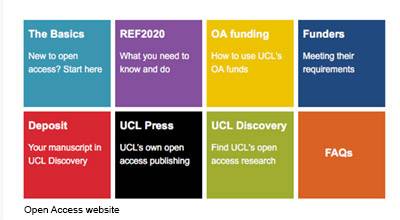
The UCL OA Team is ready to answer any questions you have - and do so for about 1,200 enquiries per month - by email or telephone (020 3108 1336; internal x51336). They can also give presentations at your department; they did this for more than 50 groups last year.
Please email enquiries specifically about depositing outputs in UCL Discovery to the UCL Discovery team.
3. UCL is engaged with shaping OA policy and practice; researchers can be, too
UCL has long endorsed a sustainable model of OA - sustainable, that is, for the producers, distributors and consumers of knowledge.
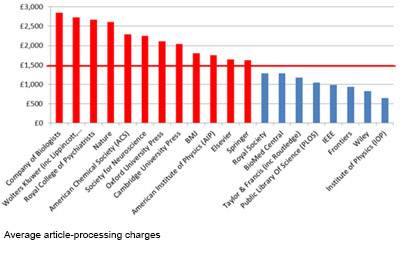
We have been at the fore of supporting new models of finance with publishers. A Jisc-coordinated agreement has been signed with Springer, which allows all papers whose corresponding author belongs to a participating UK institution to be published OA with no extra charge. Five agreements to offset article-processing charges against institutional subscriptions have been reached with the Royal Society of Chemistry, the Institute of Physics, Sage, Taylor & Francis and Wiley. Negotiations with Elsevier, to be chaired by Dr Paul Ayris, Director of UCL Library Services, will begin in the new year.
We have also continued to
press for improved coherence and alignment between OA policies brought forward
by HEFCE, the Research Councils UK and other funders. We contributed to the work
which influenced HEFCE to introduce a number of amendments to its REF OA Policy
in July 2015.
There are various Jisc projects addressing the automation of the deposit process: we contribute to the Monitor project, which is developing a new system for managing OA payments, and for aggregating information about OA payments across the UK; we have a Jisc OA Pathfinder project; and we are a partner in a project providing OA funds from the European Commission for completed FP7 projects.
Researchers themselves can have a powerful voice in OA developments. UCL researchers are encouraged to consider signing the League of European Research Universities' statement, Moving Forwards on Open Access.
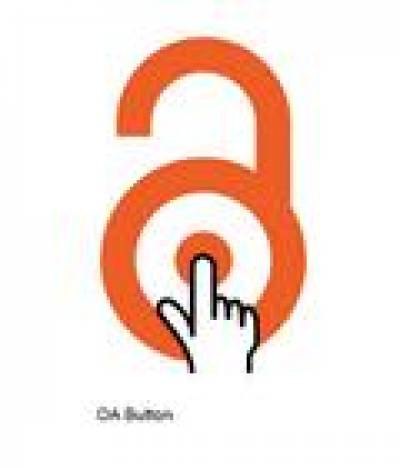
The OA Button, co-developed by UCL medical student Joe McArthur, is an app to help users access freely available copies of paywalled research. After installing the app in a browser, you can click it whenever you are denied access to academic content. It will search repositories and elsewhere for free versions of the content you want, as well as record instances in which people are denied access to research articles. Further functionality will allow you to generate an automatic email to authors, requesting the paper and asking them to deposit it in a repository.
4. UCL Press offers you free OA book and journal publishing
Launched in June 2015, UCL Press provides a significant new addition to UCL's OA services. It publishes scholarly monographs, textbooks, edited collections and journals, helping UCL academics as well as authors from other institutions to disseminate their research widely.
At the launch, Prof Lisa Jardine CBE, who sadly died last month, spoke passionately about her belief in making academic work accessible to all. Her book, Temptation in the Archives: Essays in Dutch Golden Age History, received a glowing review in the THE: "The lure of Lisa Jardine's Temptation in the Archives lies in its superior readability."
Six books have been published so far, with two more due this month, all available as free PDFs which can be downloaded from the UCL Press website. They are also available to buy in print form in paperback and hardback at affordable prices (£15-25 for paperbacks).
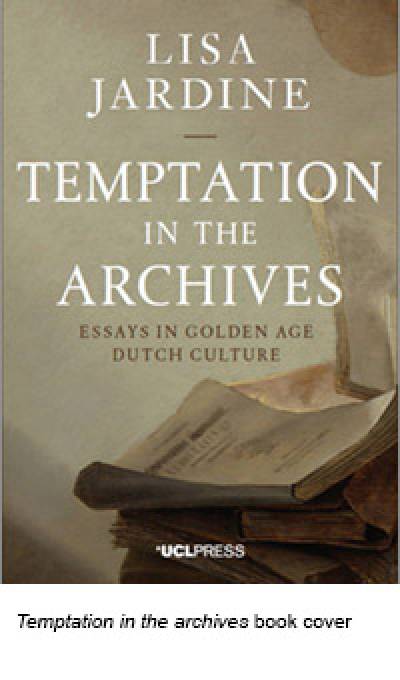
To date, the six books published have achieved download figures of more than 7,500 copies in over 80 countries, readership numbers that many academic authors can only dream of through print alone. There are plans next year for 20 more books plus at least six journals.
UCL Press welcomes proposals in all its core publishing genres, in all disciplines taught at UCL. Publishing Manager Lara Speicher and Commissioning Editor Chris Penfold are on campus to meet with any researchers who would like to hear more or just have a chance to discuss their work informally. All proposals - whether external or from UCL academics - are considered at the Editorial Board, and are then peer-reviewed in order to inform the final decision about publication.
Proposals are also invited for Spotlights, a new series of short monographs from UCL authors wishing to make new or defining elements of their work accessible to a wide audience. The series will provide a responsive forum for researchers to share key developments in their discipline and reach across disciplinary boundaries.
UCL Press publishes OA academic journals on Ingenta Connect and will launch its first two journals this autumn. Via the Open Journals Systems platform, UCL Press provides free hosting for four student OA journals.
Two new initiatives expand the UCL Press offer. This month it joins the World Reader platform, which delivers free e-books and e-readers in Africa and which is expanding to India and South America. This is a chance to deliver books to audiences that are practically impossible to reach via traditional means, and UCL Press is the first UK university press to join the platform.
It also plans to launch more books on its browser-based books platform, where readers can view two of its titles, Treasures from UCL and The Petrie Museum of Egyptian Archaeology. Now in the process of being adapted for monographs, the platform will feature the ability to make notes in the books, highlight, export and save personalised copies, among other things. Additional titles will be announced during the autumn.
5. OA is moving beyond research outputs
Not so long ago, OA research outputs were the future. Increasingly, there are expectations that the data underpinning research outputs should also be accessible (if appropriate). Most major funders have published expectations regarding data sharing.
The new UCL Research Data Management website offers guidance to handling these research data throughout the research lifecycle, from the planning stage of the project up to the long-term preservation of data. Good data management and sharing practices help researchers to ensure data quality, minimise risks, save time and comply with legal, ethical, institutional and funders' requirements. The site also provides links to UCL policies on research data, data protection, information security and research integrity.
Ultimately, OA gives you the chance to expose your work to the world, for a greater variety of research users to apply your insights in the world, and for other researchers to build on your discoveries. We support it and are committed to lessening any burden it presents to UCL researchers.
Professor David Price, UCL Vice-Provost (Research)
Captions (from top to bottom)
1) Graphic - Cumulative downloads through UCL Discovery
2) Video - UCL researchers discuss the importance of OA
3) Graphic - The UCL OA website provides clear guidance to researchers
4) Graphic - Average Article Processing Charge (APC) paid to UCL's 20 highest-paid publishers. Those in red are above UCL's average APC; those in blue are below. The average figures for each publisher take into account offsetting benefits
5) The OA Button connects you to OA versions of research outputs
6) Cover image of Temptation in the Archives
 Close
Close

